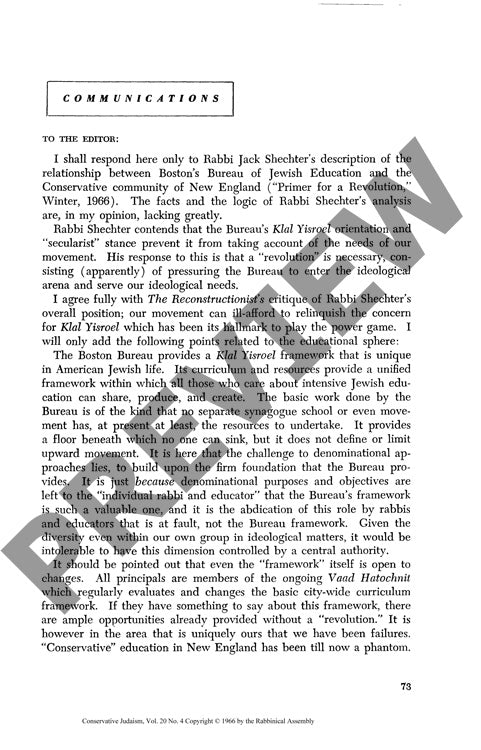Communications
Couldn't load pickup availability
This communication presents a scholarly exchange addressing two primary debates within Conservative Judaism during the 1960s. The first debate centers on the relationship between Boston's Bureau of Jewish Education and the Conservative movement, where the author defends the Bureau's Klal Yisrael orientation against criticisms of its allegedly "secularist" stance. Through analytical argumentation, the author contends that the Bureau provides a valuable unified framework for intensive Jewish education that serves all denominational groups while maintaining flexibility for individual movement needs. The methodology involves systematic refutation of previous critiques and examination of the Bureau's curriculum and organizational structure. The second debate addresses kashrut observance in modern American society, featuring opposing Orthodox and Conservative perspectives. The Orthodox position advocates strict traditional observance or emigration to Israel, while the Conservative approach seeks accommodation between Jewish law and cultural integration. The key findings suggest that educational institutions serving diverse Jewish communities can maintain religious integrity while accommodating denominational differences. The author concludes that revolutionary changes to established educational frameworks are unnecessary and potentially counterproductive, advocating instead for enhanced denominational engagement within existing structures. These debates illuminate fundamental tensions between traditional observance and modern adaptation that continue to characterize Contemporary Jewish religious discourse.

More Information
-
Physical Description
-
Publication Information
Published 1966
ISBN
-
Publication Credits

